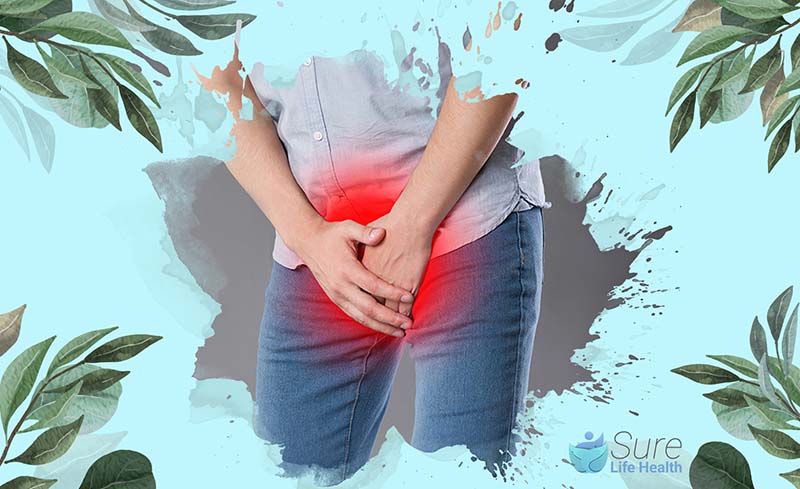Exploring the disadvantages of releasing sperm daily, this discussion navigates through the scientific aspects of frequent masturbation and its implications on bodily health, sperm count, and general wellness.
It provides insights into the daily sperm production rate in men, recommended ejaculation frequency, and the ideal routine for a health-conscious lifestyle. This exploration aims to shed light on the real effects and outcomes of daily sperm release.
7 Disadvantages of Releasing Sperm Daily
Causes Wet Dreams
One common downside of daily sperm release is experiencing wet dreams or nightfall. Essentially, this involves ejaculating during sleep, which can occur more frequently with excessive masturbation.
When you over-masturbate, your body may produce an excess of sperm, leading to an increased likelihood of wet dreams as surplus sperm is later released.

Reduced Sperm Quality
Regular ejaculation can temporarily reduce sperm count. Since the body requires time to replenish sperm reserves, frequent ejaculation can deplete them.
However, this effect is typically short-lived, and sperm count usually returns to normal levels within a few days.

Makes The Body Tired
Engaging in sexual activity, including masturbation, can sap your energy levels and impact your body’s calorie balance. If you’re indulging in daily or multiple times per day masturbation, it’s essential to ensure you’re replenishing your energy reserves.
Hormonal changes during sexual activity or masturbation can contribute to physical exhaustion and persistent fatigue.
Genitals Are Swollen
Frequent masturbation can increase the risk of experiencing sore genitals due to the pressure exerted during the act.
Vigorous or excessive masturbation may even result in genital injury, leading to discomfort and swelling.

Causes Erectile Dysfunction
Excessive masturbation or ejaculation can potentially lead to erectile dysfunction in some men.
This condition makes it challenging to achieve or sustain an erection during sexual activity, impacting overall sexual performance and satisfaction.

Changes Sexual Behavior
Overindulgence in masturbation can lead to hyper-aggressive sexual behavior patterns, adversely affecting sexual satisfaction with partners.
Unrealistic expectations may develop, leading to strain in relationships due to a negative impact on intimacy and communication.
Cause Bad Habits
Masturbation, being a source of sexual pleasure, can release dopamine and oxytocin, inducing feelings of pleasure and stress relief.
While occasional masturbation is normal, excessive indulgence may lead to addiction as individuals seek solace from their thoughts, potentially fostering unhealthy habits and dependencies.
Experience Maintaining Optimal Sexual Health
For men, actively promoting sexual health is crucial for preventing potential issues and enhancing overall quality of life.
Here are some tips based on personal experiences and professional advice:
Practice Safe Sex
Ensure safe sex practices by consistently using condoms during intercourse to prevent sexually transmitted infections (STIs) and unwanted pregnancies.
Regular STI testing is essential for early detection and treatment.
Maintain a Healthy Lifestyle
Prioritize a balanced diet, regular exercise, and sufficient sleep to bolster overall health, including sexual well-being.
Obesity and sedentary habits can contribute to erectile dysfunction and other sexual health concerns.
Manage Stress
Combat stress with relaxation techniques like meditation, deep breathing, or yoga to mitigate its negative impact on sexual health. Stress reduction can alleviate issues such as low libido and erectile dysfunction.
Limit Alcohol and Drug Use
Excessive alcohol and drug consumption can impair sexual function, leading to erectile dysfunction and other complications.
Moderating or abstaining from these substances can safeguard sexual health.
Don’t Smoke
Quit smoking to safeguard against erectile dysfunction and other sexual health issues.
Quitting smoking not only benefits overall health but also enhances sexual well-being.
Regular Check-Ups
Schedule routine check-ups with healthcare providers to monitor sexual health and detect any potential problems early.
Openly discuss any concerns or changes in sexual health during these visits.
Communication
Maintain open and honest communication with sexual partners about sexual health, desires, and concerns.
Effective communication fosters a healthy and fulfilling sexual relationship.
Avoid Excessive Masturbation
While masturbation itself isn’t harmful, excessive or addictive behavior can lead to exhaustion and decreased sexual desire.
Moderation is key to maintaining a healthy balance.

Conclusion
Grasping the disadvantages of releasing sperm daily, along with its influence on male health, requires a fine equilibrium of knowledge and restraint. While routine ejaculation presents some health benefits, recognizing the potential disadvantages of releasing sperm daily, especially when overdone, is essential.
Individual physiological responses vary greatly, highlighting the need for personal insight and the pursuit of expert advice as necessary. Through adopting wholesome habits and staying well-informed, men can foster a fulfilling and secure sexual life, thereby enhancing their overall health and well-being.
Be sure to explore more insightful blogs from Sure Life Health, where we continue to shed light on the latest trends and breakthroughs in health and wellness.
Professor Gaye Cunnane, PhD, MB, FRCPI
As the Director of Health and Wellbeing at RCPI, Professor Gaye Cunnane is at the helm of initiatives aimed at enhancing the health and well-being of RCPI Trainers and Trainees. Her role extends beyond administration; she is also a respected clinical professor of rheumatology and a consultant rheumatologist at Trinity College Dublin (TCD) and St James’s Hospital. Prof. Cunnane’s medical journey began at TCD, where she graduated from medical school, and her path has been marked by both clinical and academic excellence.
After completing her basic clinical training in medicine, she embarked on PhD studies at University College Dublin and St Vincent’s University Hospital. Her research during this period was focused on prognostic markers in early inflammatory arthritis, a project that saw her collaborating with esteemed universities across Europe, including in Switzerland, The Netherlands, the UK, and Sweden.
Prof. Cunnane’s career took her to the University of California, San Francisco, where she spent three years delving into research on new treatments for lupus. Her academic prowess led her to the University of Leeds in 2001 as a senior lecturer, before returning to Ireland in 2003 to assume her current roles. She has also served as the National Specialty Director for Rheumatology training in Ireland, Programme Director for Basic Specialist Training with RCPI, and as a past President of the Irish Society for Rheumatology.
PUBLISHED ARTICLES
“Rheumatic disease differentiation using immunoglobulin G sugar printing by high-density electrophoresis”: Published in The Journal of Rheumatology, this study reflects her in-depth investigation into rheumatic diseases.
“Benefits of exercise in patients with rheumatoid arthritis: a randomized controlled trial”: This research work, highlighting the positive impact of exercise on rheumatoid arthritis, underscores Prof. Cunnane’s dedication to practical, patient-centered research.
Additionally, Prof. Cunnane has made notable contributions to the Annals of the Rheumatic Diseases, discussing early referral, diagnosis, and treatment of rheumatoid arthritis. She has also been involved in a study on the NCBI platform investigating exercise benefits in rheumatoid arthritis patients.
Professor Gaye Cunnane’s career is a testament to her commitment to improving patient outcomes in rheumatology through rigorous research, clinical excellence, and dedicated teaching. Her work continues to influence the field of rheumatology, both in Ireland and internationally.

